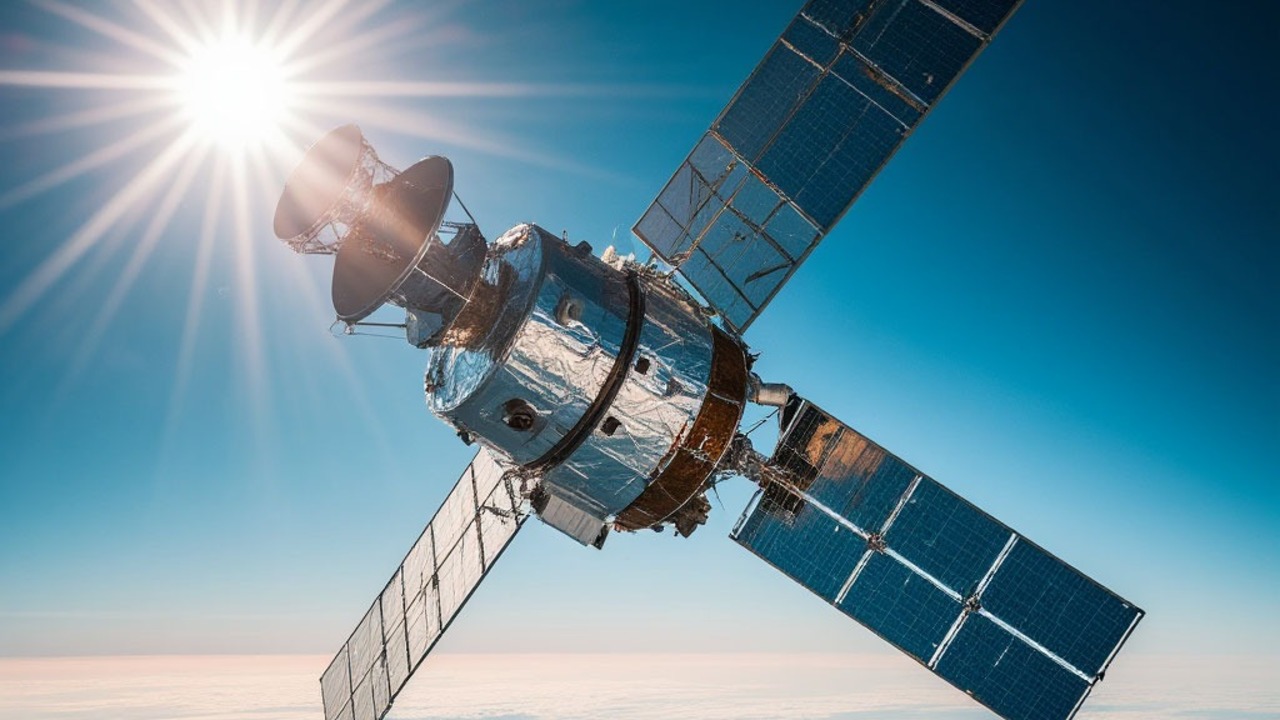The director of Norilsk Nickel, Vladimir Potanin, gave a long interview to the RBC television channel. What he said is in the RB.RU material.
Author:
https://rb.ru/author/alipova/
Subscribe to RB.RU on Telegram
On the impact of the pandemic on inflation
“I think the nature of the inflation we are seeing now started during the pandemic. Not only our country, but the entire world, fearful of what could await us, began to stimulate demand in every possible way to support their national economies and people. In short, the injection of money into national economies has begun.”
On the imbalance between supply and demand as a catalyst for inflation
“We have been stimulating demand for a long time and until recently we continued to stimulate it in the form of preferential mortgages, in the form of preferential loans for manufacturers. <…> “This type of action caused a temporary overheating of the economy.”
“The period of strong sanctions pressure affected us. I have already mentioned difficulties with payments, with supply chains, restrictions on the export of our products… This affected our ability to produce more, to fill our supply more. And therefore, demand was temporarily greatly overheated relative to supply. And until these two trends converge, until our economy can provide enough products to meet increased demand, until then there will be high inflation or the risk of uncontrolled growth.”
About money and “cheap” loans as a symbol of the coming year
“If we now grant cheap and unjustified loans <…> “It will happen over time, but the impact on inflation will be immediate.”
In conditions of labor shortage, the injection of funds will only worsen the situation:
“With the current competition for labor resources, there will simply be an uncontrolled increase in wages, which, consequently, will cause a new heating of demand. “It’s a snake that eats its own tail.”
About the factors that slow down the investment process
In addition to the difficulties in the labor market and the danger of allocating cheap material resources to companies in this situation, Vladimir Potanin added several more reasons to be cautious when investing:
“Import substitution cannot give a 100% result. We will continue to participate in the international division of labor. And as long as we have restrictions and difficulties in obtaining technology and equipment, this will also slow down the investment process. Do nothing? Of course not. Of course, we have to invest, we have to act, but we have to act with patience.”
On the lack of “long-term” money in business
“Our investment structure in the economy is such that there are a lot of borrowed funds. And the source of investment of own funds is mainly the profit of enterprises. “This is a good source of investment, but the problem is that we do not have so-called long-term money, especially private long-term money.”
The businessman noted that the system of non-state pension funds could now become an institution to attract long-term investments, but the moment of its development has been missed.
On the need to develop the capital market for the benefit of SMEs
“Entrance [из непростой ситуации] It will not happen by magic, but by using the right market tools, which we simply must learn to use. There are no tools for this, for example, a developed capital market infrastructure. Yes, we have stock exchanges, we know what an IPO is, but we have very little private investment in various small companies, private equity. You don’t need to go public, you don’t need to become a public company. For many companies this is unacceptable and inconvenient. Many businesses are family-owned and partnership-based. Of course, they would find it easier to attract capital, sell some shares, but remain a private company. Here that market is not developed.”
Potanin clarified that development in this direction is necessary so that the emphasis shifts to investments with own funds and reducing leverage, in this way the system will be more stable.
On the impact of Western sanctions on banking transactions
“Sanctions have a very strong impact on payments and supply chains. And as these sanctions are introduced, problems come to us in natural waves that cause panic and affect the value of the national currency. The last such increase was related, in my opinion, to Gazprombank sanctions and some other restrictions.”
According to the head of Norilsk Nickel, a dollar exchange rate above 100 rubles is “something the country can live with.”
On the need to unite with companies from friendly countries
“The larger the association, the more difficult it is to impose sanctions on it, because it becomes increasingly self-sufficient. One of the problems with our country is that, frankly, we have a small market. And therefore, any implementation story, scientific and technical, is complicated by the fact that we must necessarily involve other markets. Therefore, uniting within the BRICS or opening markets with each other is a very important task for us. And the larger such an association is, the more difficult it is for it to dictate the conditions.”
About the alternative financial system of the BRICS
Although agreements usually follow commercial turnover, which is influenced by relations between countries, Potanin does not believe in the effectiveness of alternative financial systems:
“Is it possible to create some kind of international settlement system, so to speak, especially if it is based on some kind of supercurrency? “I think this is a dead end.”
As an example, he cites the “supranational currency” in the EU, whereby “an infringement of the interests of individual members of the organization” occurs. In this sense, according to the speaker, the situation of the BRICS is much better and in the future the countries of this union could develop new rules of the game, but for now “we need to take advantage of the possibilities of bilateral compensation relations and introduce more agreements related to digital financial assets.”
About DFA and cryptocurrencies
“I don’t like being tied to cryptocurrencies. I would like it better if these were still digital financial assets. Because they are linked to real goods and services. Crypt still has an ambiguous meaning. If it replaces national currencies, I think no regulator will like it. This is not good at all. And if this does not replace national currencies, how is this crypt different from any other product, from gold, for example? Bitcoin behaves very similar to gold. I mean, it’s more like a treasure, more like a treasure.”
About the fiscal adjustment
“When taxes are raised at such a difficult time for the country, normal businessmen understand that this is their contribution, pathetically speaking, to a future victory, and not extortion from government bodies that come peacefully every day. When people understand what they are paying for, they don’t lose the drive to work. This is the first one.
Second: for a businessman, of course, the absolute volume of taxes is important, but predictability is much more important. And the fact that the government promised that with a 25% income tax, various types of secondary taxes, duties and, for example, other non-tax instruments for tactical replenishment of the budget would not be applied, it seems to me that for the climate economic and investment It is very important for the country that the government continues to fulfill this promise. So this does not pose an insurmountable problem for companies, it is simply a slight tightening of fiscal policy. But if it is stable, predictable and does not change anymore, companies will adapt quickly.”
On the inadmissibility of confiscation and nationalization
“Our economy is strong with market instruments and a fairly mature business, so a mobilization economy that abandons this and transfers everything to a conditional state planning and conductive system, I think is less effective, and the transition to it, in my opinion. , it is undesirable.”
On the advantages of privatization.
“Now there is a conversation about how to replenish the budget and so on. <…> More private investment, more private initiatives and perhaps resorting to privatization. Furthermore, many say that privatization is a source of budget replenishment. It always seemed to me that, in the end, yes, of course, replenish the budget, but the main thing is not this, but the fact that companies that do not have an owner, because an official cannot be an owner, sorry, No offense , they find an owner who, if normal, begins to use this notorious private initiative, and the company becomes effective. That is, privatization is a way to make a company more efficient. And only secondly is it a fiscal measure.”
About the payment of dividends
The company has certain problems: nickel and palladium prices have fallen by 40%. it is impossible to resort to financing from Western institutions; The cost of servicing refinanced loans has increased and working capital has also increased – at its peak, up to $4 billion instead of the anticipated $1 billion. And yet, the billionaire is optimistic:
“We will return to free and positive cash flow, but through serious optimization and anti-crisis measures, which are currently underway at Norilsk Nickel.”
“In general, it is terrible that a company produces less money than it consumes. This is simply not a normal situation. We will not reach such a situation. And next year we hope to move to positive cash flow. But until we switch to it, of course, we will not distribute dividends. Because distributing dividends with debt funds, of course, is not an option for our company or any other. Therefore, dividend shareholders will have to be patient for a while.”
About Norilsk Nickel’s strategy
“Building new value chains, supply chains and payment chains is a very important story. And in Norilsk Nickel’s strategy this is one of the pillars. First, we want to maintain our growth strategy. Headwinds, small investments and we cut our investment program. However, we do not move to a survival strategy. “We continue in what we call a moderate growth strategy.”
The more aggressive strategy that Potanin announced in spring is now out of the question, as it was important to “engage more closely with Chinese partners to produce something together.” This required considerable government support in response to “preserving the tax base and jobs, as well as preserving skills” (production in the Russian Federation, and not just abroad).
Author:
Ekaterina Alipova
Source: RB
I am a professional journalist and content creator with extensive experience writing for news websites. I currently work as an author at Gadget Onus, where I specialize in covering hot news topics. My written pieces have been published on some of the biggest media outlets around the world, including The Guardian and BBC News.










